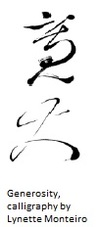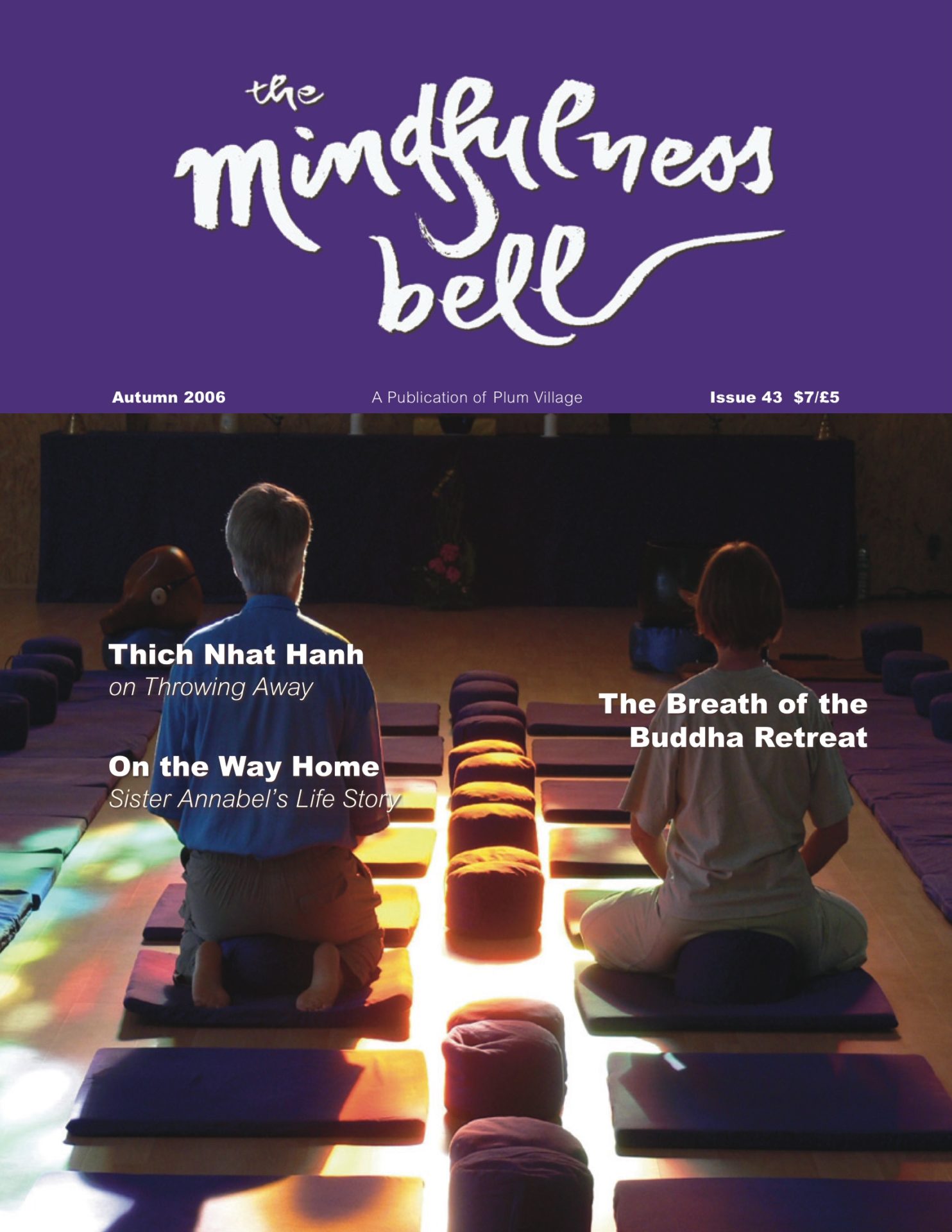
By Janice Rubin
On a recent Monday evening with my sangha, during the dharma discussion I talked about the book Hooked! In this wonderful book Buddhist scholars and teachers write about greed and the urge to consume. I also spoke about the way our culture’s encouragement of greed and acquisition run counter to Buddhist teachings.
The Second Mindfulness Training teaches us to not take what does not belong to us.

By Janice Rubin
On a recent Monday evening with my sangha, during the dharma discussion I talked about the book Hooked! In this wonderful book Buddhist scholars and teachers write about greed and the urge to consume. I also spoke about the way our culture’s encouragement of greed and acquisition run counter to Buddhist teachings.
The Second Mindfulness Training teaches us to not take what does not belong to us. Yet when we build bigger cars and homes, acquire more clothing than our closets can hold, or replace items that could have been reused, we are using more than our fair share of the resources of the earth. In Asian countries that are becoming Westernized, the Buddhist life of simplicity has been giving way to a culture of shopping and acquisition. Anxiety appears to be increasing among the people because in an acquisitive culture, adequacy is unattainable—one can never have enough or be good enough.
Letting Go of Attachment
In the Second Mindfulness Training we commit ourselves to practicing generosity by sharing what we have with those in need. The annual “Heavenly Treasures” rummage sale at the church where we meet has served to keep me focused on dana all year round. As I go into drawers or closets, or try to make room for newly acquired books on shelves, I find myself selecting items that I will donate to the sale. Over the years I have been slowly letting go of the unneeded things one accumulates during fifty-five years of marriage. At the same time I have been enabling others to pick up for a song something they might treasure. The church that has been so generous in welcoming us three times each week, and whose pastor, Jack Lohr, founded our Sangha, benefits financially from this giving and in turn, uses the money for good works for those less fortunate.
Another member of my Sangha, Madelain, mentioned that those who refuse to accede to the demands of modern society often find themselves forced to do so. She said she has refused to acquire a cell phone, but may eventually have to do so because the availability of public phones for use in an emergency away from home has diminished. Also, she said, the uncertainty that Social Security benefits will be available when her generation is ready to retire, causes many to invest their money in material goods as a form of insurance.
Steve said he had changed careers because he found the planned obsolescence in the industry in which he worked to be contrary to his beliefs. In the past few years he had experienced much loss, but each loss, whether of material things or relationships, had made him appreciate more what he does have. Jack, a management consultant, was currently involved in setting up a meeting of large manufacturers from all over the industrialized world. He believes we are at the tail end of the consumer culture. Industrial leaders are now aware of the importance of conserving natural resources and protecting air quality. They are producing goods that are not only better made and longer lasting, but will either be biodegradable or recyclable when they are no longer useful. We are the only animals on earth whose waste is not degradable, he added.
Finding the Middle Way
A longtime Buddhist practitioner, he said one of the problems of an acquisitive lifestyle relates to the fact that acquisition is in the future. What you have can only be enjoyed in the present moment. The greedy person, consumed by thoughts of future acquisition, fails to take pleasure in what is here to be enjoyed now.
I read aloud the first few pages and the last page of an essay by Sumi Loundon, one of the seventeen Buddhist scholars and writers in Hooked! She described, with some humor, her upbringing in a 1970s American Zen Buddhist commune. While grateful for the awareness of consumerism with which she was raised, and which still affects her choices in life, she said she does not intend to raise her children in an atmosphere of such deprivation.

We agreed that the Buddha’s teaching on the Middle Way would be a fine guide for us all on the path between self-abnegating austerity and the rampant consumerism promoted by our society.
Janice Rubin practices, teaches, and writes in Bergen County, New Jersey.

